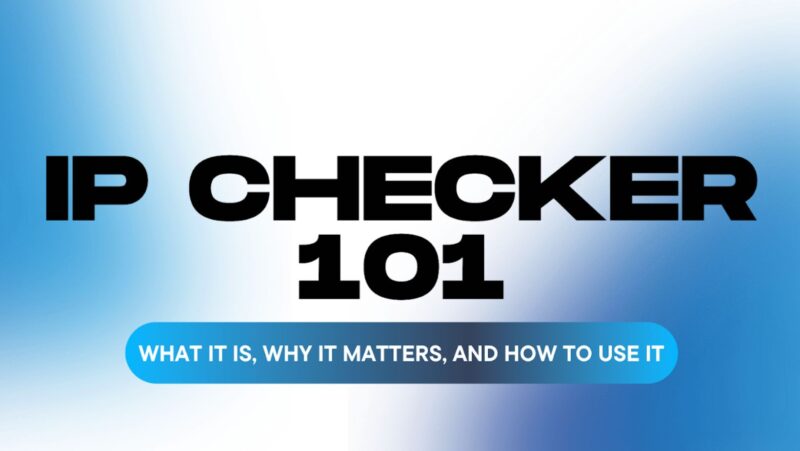
In today’s digital era, having a reliable and fast internet connection is essential for personal and professional activities. From streaming movies and gaming online to working from home and staying connected with loved ones, the quality of your broadband service can significantly impact your online experience. Choosing the premium broadband provider is crucial to ensuring you get the best service for your needs. This article will guide you through the key factors to consider when selecting a broadband provider, the different types of broadband services available, and some tips for making an informed decision.
Types of Broadband Services
Before diving into how to choose a broadband provider, it’s important to understand the different types of broadband services available:
- ADSL (Asymmetric Digital Subscriber Line): ADSL uses existing telephone lines to deliver internet services. It’s widely available and generally less expensive than other types of broadband. However, ADSL speeds can be slower, and the quality of service can decrease with distance from the telephone exchange.
- Fibre Optic Broadband: Fibre optic broadband provides faster speeds and more reliable connections compared to ADSL. It uses fibre optic cables to transmit data, which are less prone to interference and signal degradation. Fibre broadband can be further divided into:
- Fibre to the Cabinet (FTTC): The fibre optic cables run to a street cabinet, and the connection from the cabinet to your home is via copper cables. This offers faster speeds than ADSL but can be affected by distance from the cabinet.
- Fibre to the Home (FTTH): Fibre optic cables run directly to your home, providing the fastest and most reliable broadband connection. FTTH offers superior speeds and performance compared to FTTC and ADSL.
- Cable Broadband: This type of broadband uses coaxial cables, similar to those used for cable TV, to deliver internet services. It can offer high speeds and reliable connections but may be limited to areas where cable infrastructure is available.
- Satellite Broadband: Satellite broadband provides internet access via satellite signals. It’s useful in remote areas where other types of broadband are not available. However, it can be affected by weather conditions and typically has higher latency compared to other broadband types.
- Mobile Broadband: Mobile broadband uses 3G, 4G, or 5G networks to provide internet access. It’s portable and convenient, making it a good option for users who need internet access on the go or in areas with limited fixed-line broadband options.
Factors to Consider When Choosing a Broadband Provider
Selecting the right broadband provider involves evaluating several key factors to ensure you get the best service for your needs. Here’s a comprehensive guide to help you make an informed choice:
- Speed and Performance: One of the most critical factors is the speed and performance of the broadband service. Consider your internet usage habits and the number of users in your household. If you stream videos, play online games, or work from home, you’ll need a higher speed and more reliable connection. Check the provider’s advertised speeds and read customer reviews to gauge real-world performance.
- Data Limits: Some broadband plans come with data caps or usage limits, while others offer unlimited data. If you use a lot of data for streaming, downloading, or online gaming, an unlimited plan is preferable to avoid extra charges or throttled speeds.
- Cost and Value for Money: Compare the monthly cost of different broadband plans and consider any additional charges, such as installation fees or equipment rental costs. Look for promotions or discounts that may be available for new customers. While the cheapest option may be tempting, ensure that the plan offers good value for money in terms of speed, data allowance, and customer service.
- Contract Terms: Broadband providers often offer contracts that range from 12 to 24 months. Some may offer no-contract or short-term plans for greater flexibility. Consider your needs and circumstances when choosing a contract length. No-contract plans may have higher monthly costs but offer the advantage of flexibility if you need to move or change providers.

- Customer Service and Support: Reliable customer service is crucial for resolving issues and maintaining a positive experience with your broadband provider. Research the provider’s reputation for customer support by reading reviews and checking their support options, such as phone, online chat, or email.
- Availability and Coverage: Not all broadband providers offer service in every area. Check the availability of the provider’s service in your location to ensure you can get the broadband plan you want. Providers with extensive coverage and a strong network presence are more likely to offer reliable service.
- Additional Features and Bundles: Some broadband providers offer additional features or bundles, such as TV packages, phone services, or mobile plans. If you’re interested in these extras, consider whether they provide good value and if they align with your needs.
- Equipment and Installation: Find out what equipment is included with the broadband plan, such as routers or modems, and whether there are any installation fees. Some providers may offer free or discounted equipment, while others may charge extra for it.
Popular Broadband Providers
Several broadband providers offer a range of plans and services to suit different needs. Here’s a brief overview of some popular options:
- BT (British Telecom): BT offers a variety of broadband plans, including fibre optic options with high speeds and unlimited data. They also provide bundles with TV packages and phone services. BT is known for its extensive coverage and reliable service.
- Sky: Sky provides a range of broadband options, including fibre and superfast plans. They also offer bundles with Sky TV and phone services. Sky is known for its strong customer service and competitive pricing.
- Virgin Media: Virgin Media is renowned for its high-speed fibre optic broadband, offering some of the fastest speeds available. They also provide bundles with TV and phone services. Virgin Media is a good choice for heavy internet users and those looking for high-performance connections.
- Plusnet: Plusnet offers affordable broadband plans with a focus on customer service. They provide a range of options, including fibre and ADSL plans, with no-contract options available. Plusnet is known for its competitive pricing and reliable service.
- TalkTalk: TalkTalk provides a variety of broadband plans, including fibre and ADSL options. They offer competitive pricing and bundles with TV services. TalkTalk is known for its straightforward plans and good value for money.
- Hyperoptic: Hyperoptic specialises in full-fibre broadband, offering high-speed and reliable connections in select areas. They provide competitive pricing and unlimited data plans, making them a good choice for those who want top-tier performance.
Tips for Making the Right Choice
- Assess Your Needs: Determine your internet usage habits, the number of users, and the type of activities you engage in online. This will help you choose a plan that offers sufficient speed and data for your needs.
- Read Reviews: Look for customer reviews and ratings to get an idea of the provider’s performance and customer service. Independent review sites and forums can provide valuable insights into the real-world experience of other users.
- Compare Plans: Use comparison tools to evaluate different broadband plans and providers. Compare factors such as speed, data limits, cost, and contract terms to find the best option for your needs.
- Check for Hidden Costs: Be aware of any additional charges that may apply, such as installation fees, equipment rental, or early termination fees. Read the terms and conditions carefully to avoid unexpected costs.

- Test the Service: If possible, take advantage of any trial periods or satisfaction guarantees offered by the provider. This allows you to test the service and ensure it meets your expectations before committing to a long-term contract.
Conclusion
Choosing the right broadband provider is a crucial decision that can significantly impact your online experience. By understanding the different types of broadband services available and carefully considering factors such as speed, cost, data limits, and customer service, you can make an informed choice that meets your needs and preferences. Whether you’re looking for high-speed fibre optic broadband, a flexible no-contract plan, or a reliable provider with excellent customer support, there are plenty of options to choose from. Take the time to research and compare providers to find the perfect broadband solution for your home or business.












